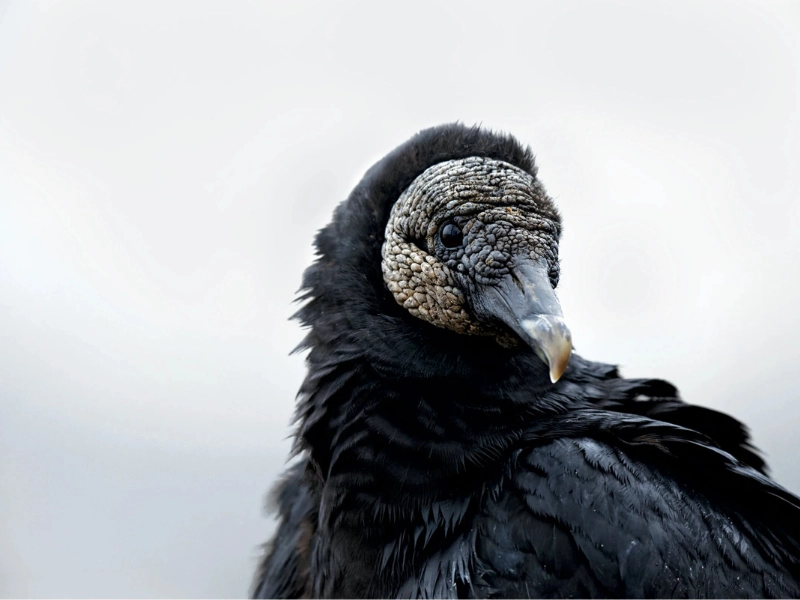Advertisement
3. Black Vultures

Advertisement
Fascinating birds that sometimes contradict our ideas of monogamy and loyalty in the animal world are black vultures. Members of the family Accipitridae, these scavengers are mostly found in the Americas, where their consumption of carrion is vital for the ecology. Black vultures show a different approach to pair bonding and social behaviour than many other bird species, which has attracted the interest of both researchers and aficionados for wildlife.
Strong pair ties created between male and female mates define black vultures as they are. These relationships are strengthened by shared duties in parenting and territory defence in addition to their basis on attraction. Unusual for many bird species, black vultures are known to hang together year-round. Studies of bonded pairs of black vultures have revealed coordinated activities including egg incubation and young feeding. The existence of their children depends on this shared responsibility since it raises the possibilities of successful growing in a demanding surroundings.
Fascinatingly, black vultures show less forgiveness of infidelity than some other animals. Observing them attacking other vultures caught in extramarital affairs emphasises the need of loyalty inside their social systems. This aggressive behaviour helps to preserve the integrity of the connections between mated couples and deepen their ties. The focus on authenticity among black vultures implies that environmental elements as well as evolutionary influences define their social dynamics.
Researchers have investigated black vultures' monogamous behaviours using genetic data derived from DNA fingerprinting. Bonded couples regularly exchange duties throughout the breeding season, according to a study written up in the journal Behavioural Ecology; they alternate in sitting on their eggs and tending to their offspring. This division of work improves not only their young survival but also their relationship. The dedication to cooperative parenting is evidence of the sophisticated social systems black vulture communities create.
Apart from their fascinating social interactions, black vultures have amazing physical adaptations that help them to be effective scavengers. Their strong beaks are meant for breaking through tough hides and getting the nourishing flesh inside; their sharp eyesight lets them locate carrion from considerable distances. Since they depend on the availability of food sources to survive in their surroundings, these adaptations are absolutely crucial.
Black vultures are vital members of the ecosystem, although they also suffer habitat loss, poisoning, and human persecution among other hazards. Protection of these unusual birds and guarantee of population stability depend on conservation initiatives. We can help to protect black vultures and their habitats by increasing knowledge of their ecological value and supporting cohabitation with nearby populations.
Black vultures are, all things considered, remarkable birds that challenge accepted ideas of monogamy and loyalty. Their exciting subject for research is their strong pair bonds, shared parental duties, and unusual social behaviours. It is imperative to understand the need of conservation initiatives to safeguard these amazing species and their responsibilities within the environment as we keep investigating the life of black vultures.
